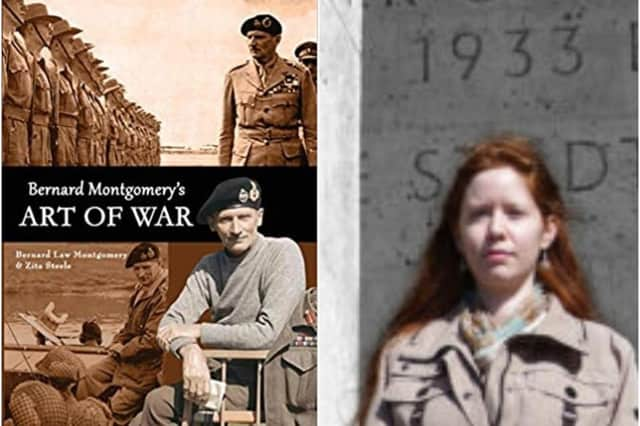Book signing being held in Warwick for novel about Bernard Montgomery of the Royal Warwickshire Regiment


A book signing event is being held for a new novel about story of Bernard Law Montgomery of the Royal Warwickshire Regiment and his roles in the wars.
The book 'Bernard Montgomery’s Art of War', by author Zita Steele gives an insight into Montgomery’s thoughts and writings on his approach to war.
Advertisement
Hide AdAdvertisement
Hide AdBooks will be signed by Zita and Viscount Montgomery (grandson of the great military leader, Field Marshal Bernard Montgomery).
The event will take place on Saturday December 4 from 11am to 1pm at the Warwick Arms Hotel, in High Street in Warwick.
It is a fundraising event organised by the Friends of the the Fusilier Museum in Warwick, which tells the story of the county infantry regiment from 1674 to today and next year it is moving to Pageant House in the town centre.
In 1908, at the age of 21 years, Bernard Law Montgomery, the son of a Church Minister, was commissioned from officer school at the Military Academy Sandhurst into The Royal Warwickshire Regiment.
Advertisement
Hide AdAdvertisement
Hide AdHe moved to France with the Regiment at the start of World War One and quickly saw action during which he was wounded.
He was appointed as a Staff Officer – desk job - role in France for the remainder of the war and this gave him an insight into the type of military thinking and planning which took place and with which he became increasingly frustrated.
Between the wars, he wrote copiously about the need for a more mobile form of warfare to replace the static strategies of the Great War.
He commanded the Royal Warwickshire Regiment in Palestine and India before promotion to Brigadier, followed swiftly by promotion to Major General to command a Division which formed part of the British Expeditionary Force (BEF) sent to Europe at the outbreak of the Second World War.
Advertisement
Hide AdAdvertisement
Hide AdThanks to his training regime, his force was able to withdraw with great professionalism almost intact through Dunkirk with minimum casualties.
Back in England, he made no secret of his criticism of the War Office and senior officers about the conduct of the operations of the BEF and of the shortage of equipment which had hampered his operations.
For more about Bernard Law Montgomery go to: https://www.warwickshireworld.com/news/people/the-story-of-bernard-law-montgomery-of-the-royal-warwickshire-regiment-and-ve-day-2845353